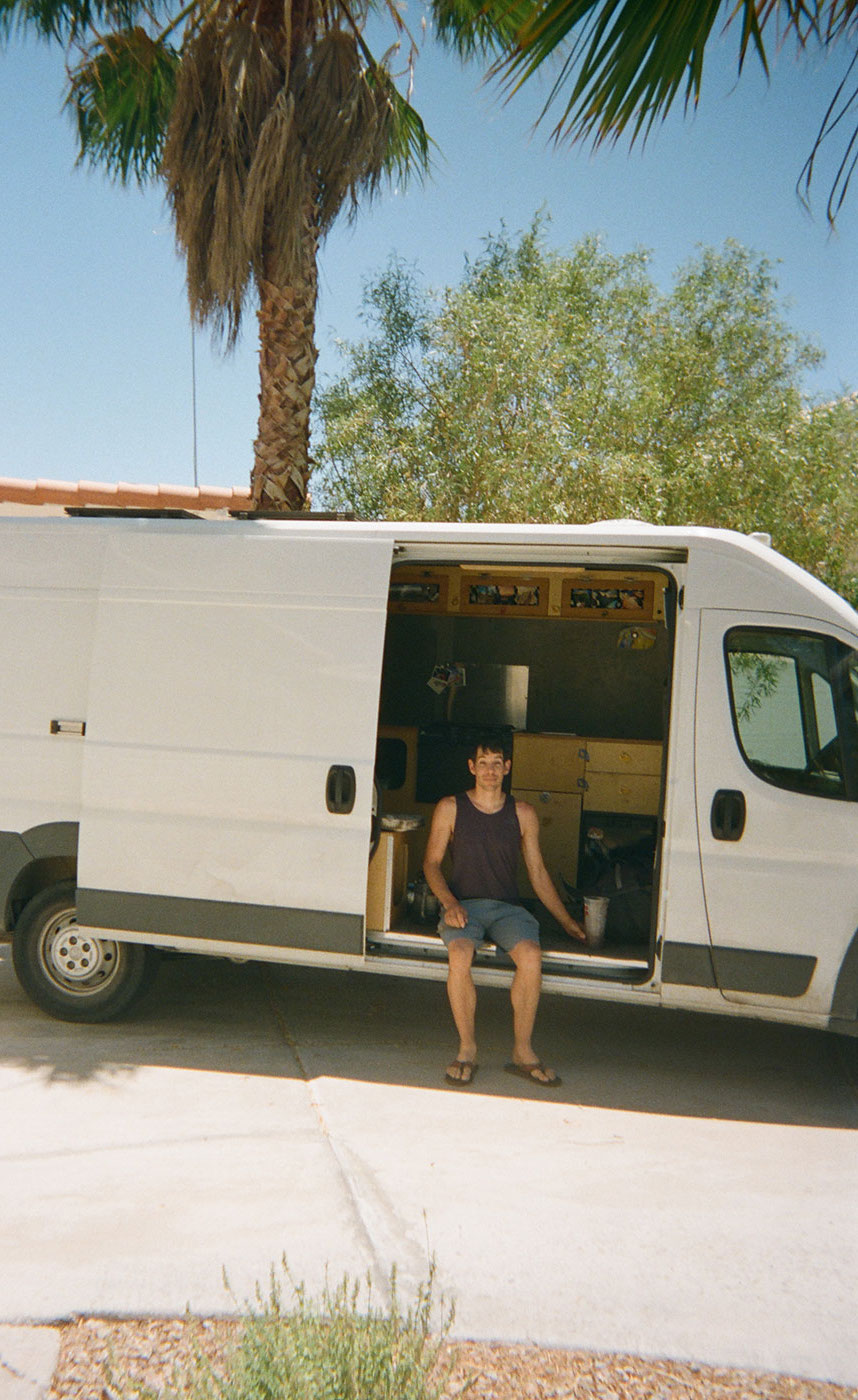AH — Yeah, I certainly have to do all the preparation myself. I need to feel the rocks myself. And make the decisions myself. I think it’s a little bit different because I’m not relying on a team.
AHG — The Wallendas were a circus act, like all traditional wirewalkers. But Petit went to art school. He sees what he does as performance art. Do you look on the work the same way?
AH — No. I take an even different view. I come to climbing from an athletic background. Not that I was any good of an athlete before, but I think of climbing more as an athletic act. Which is probably closer to the circus side than the artist side. But being a circus act you are still very much a performer, it still has to do with the crowd. The athletic side has more to do with human potential and human ability, like what can you physically do, what is the body capable of. Both art and the circus are about performing for other people. My climbing is more about performing for myself.
AHG — Do you sometimes take your training into different directions?
AH — [another chuckle] By many standards I’m relatively lazy. I spend too much of my time going on expeditions, going on adventures and climbing outdoors. To be truly an elite athlete I would have to train in the gym quite a bit more, and that’s just not something I spend my time on. But I’m serious about training. I certainly do my best to be a good climber.
AHG — There’s reference on one of the videos to your having a fall.
AH — I’ve had many, many falls. Most are totally normal falls with a rope on. And I’ve had a couple of semi-serious falls. But for twenty years climbing that’s to be expected.
AHG — Might I ask what goes through your head when you’re actually falling?
AH — Falling with a rope, nothing is going through your head. Because that is totally normal. I fall with a rope every single day. That’s part of the normal process. And occasionally you take more serious falls.
AHG — When you were still only thinking about the climb of El Capitan you said, like you were questioning, “Maybe it’s for a future generation? Or, “Maybe it’s for somebody who’s got nothing to live for?”
AH — So your question is about future generations?
AHG — No. Just that it sounds like you live with the awareness that if things go wrong for you they are going to go badly wrong.
AH — Actually it was more, maybe I’ll never try it and maybe I’ll leave it for the future. It’s not like I’m going to die and someone else will have to do it. It’s more that if I don’t feel comfortable and never do this, then someone else will eventually.
AHG — Have you lost many friends doing this?
AH — Actually, the last couple of years have been surprisingly bad. But most people have died in accidents sort of peripherally related to climbing. Like avalanches. A couple of friends died base jumping. Jumping off cliffs with parachutes. And then I’ve seen a few horrible climbing accidents where people just fell, even with a rope on, and then they hit the ground. If you had asked me that question two years ago I would have said that climbing has been surprisingly safe and not too bad. But the last few years have been pretty crazy. And I think part of that is because as I have become more well-known as a climber or just more in the community, I know everybody now. So when anything happens to anyone it feels slightly more personal.
AHG — So you have now climbed El Capitan, which is the crown jewels. What next?
AH — Everybody asks that. Honestly, I’m not sure. I’ve spent eight years dreaming about El Capitan and building up to it, and I’m still very much thinking about El Capitan. You know, it’s hard to really focus on the next thing, I’ll just have to wait and kind of see what inspires me. Nothing will ever inspire me quite like El Capitan, and the fact that it really represented the next step for me. So I’m not sure what the next step will be beyond that. It will take some time to find that. El Capitan was a unique challenge and objective. It was just such a combination of factors, like how big, and beautiful—but also how difficult.
AHG — When I looked at it, the word “difficult” did not occur to me. The word “impossible” occurred to me.
AH — Well, I thought “impossible” too, ten years ago. And then over the years it went from “impossible” to like, “well…maybe!” And then eventually it became “inevitable.” And then I did it. — END
